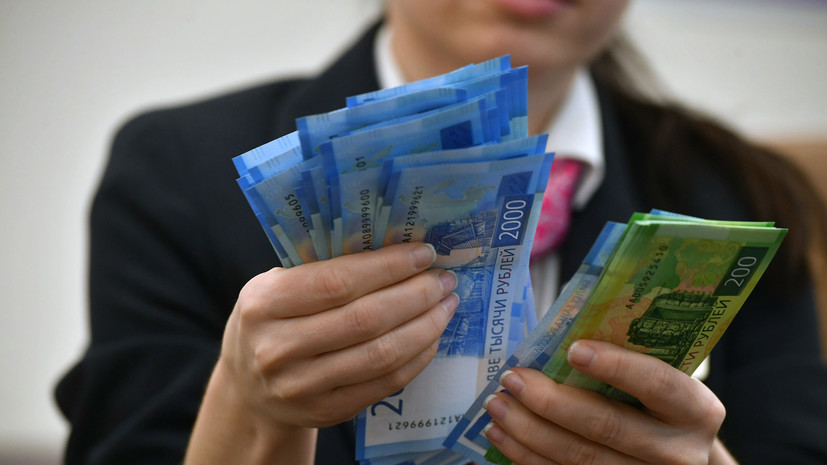On Monday, March 6, Russian deputies submitted to the State Duma a draft law on an accelerated increase in the minimum wage (minimum wage).
The document was published on the official website of the lower house of parliament.
As part of the initiative, from January 1, 2024, it is proposed to increase the minimum wage immediately by 18.5% - up to 19,242 rubles.
Previously, it was planned to index the indicator by 8.5%.
The idea to further increase the minimum wage belongs to President Vladimir Putin.
The head of state announced the need for such a decision on February 21 in his message to the Federal Assembly.
As the Russian leader recalled, in 2022 the minimum wage in Russia was increased twice - by a total of almost 20%.
At the same time, since January 1, 2023, the value has grown by another 6.3% and now stands at 16,242 rubles.
In the future, according to Putin, the indicator should continue to be indexed, and at a rate higher than inflation.
“The government and the subjects of the Federation have been given the objective task of ensuring a noticeable, tangible increase in real wages in Russia.
An important indicator, the starting point here is the minimum wage,” the President stressed.
RIA News
© Mikhail Metzel
To clarify, the minimum wage sets the minimum wage that a full-time employee can receive.
In addition, the parameter is used to calculate benefits for temporary disability, as well as for pregnancy and childbirth.
According to preliminary estimates, the increase in the minimum wage, planned from 2024, should lead to an increase in the wages of about 7 million Russians.
Svetlana Bessarab, a member of the State Duma Committee on Labor, Social Policy and Veterans Affairs, spoke about this in a commentary to RT.
“The increase will affect not only workers of the first category, who receive a salary in the amount of the minimum wage.
We believe that indexation will entail the alignment of the entire salary grid in the whole country,” Bessarab added.
A similar point of view is shared by Georgy Ostapkovich, director of the Center for Market Research at the Institute for Statistical Research and the Economics of Knowledge at the National Research University Higher School of Economics.
According to him, the planned indexation should provoke a ripple effect in the labor market.
“The fact is that the minimum wage is mostly people with a low level of qualification.
Conventionally, such employees do only 10% of all the work, but if they raise their salary, then more productive personnel need to increase it, since they cannot receive the same.
For state employees in this sense, there are no problems.
I think the authorities will find money for this.
At the same time, it will probably be more difficult for private business to implement such an initiative, ”said the interlocutor of RT.
Growth in consumer demand in the economy can help companies partly cover the costs of raising the minimum wage.
This opinion was shared by the president of the all-Russian public organization of small and medium-sized businesses "Support of Russia" Alexander Kalinin in a conversation with RT.
“For business in general, the situation is twofold.
On the one hand, in the event of an increase in the minimum wage, entrepreneurs will have to pay more insurance premiums.
On the other hand, the size of many social benefits will also increase.
This means that the Russians will begin to receive more money from the state and, accordingly, will be able to spend more on the purchase of goods and services, thereby supporting small and medium-sized businesses,” Kalinin explained.
Breakaway
Note that in accordance with the Constitution of Russia, the minimum wage cannot be less than the subsistence minimum (PM) of the able-bodied population.
Now this amount on average in the country is 15,669 rubles.
The authorities use it to assess the needs of citizens when providing various state support measures, such as monthly payments to low-income families with children.
At the moment, the minimum wage exceeds the amount of the PM by only 4%.
However, already in 2024 the difference should increase to 17%, and in the future the country's leadership is going to bring it up to 30%.
This was previously stated by the Minister of Labor and Social Protection of the Russian Federation Anton Kotyakov.
“Just three or four years ago, we lived in conditions where the minimum wage was below the subsistence level.
The first criterion on which the actions of the government were oriented was bringing the minimum wage to the level of the subsistence minimum of the able-bodied population.
To date, this bar has been passed, we do not stop at it, we move on, ”said the head of the Ministry of Labor.
In addition to the general improvement in the well-being of citizens, the increase in the gap between the minimum wage and the PM is aimed at increasing the level of employment, Svetlana Bessarab noted.
According to her, earlier, for many citizens with a low level of qualification, it was more profitable to live on benefits from the state than to officially find a job and receive a minimum wage.
Today, this situation is gradually changing.
“For example, a young mother without qualifications received a child benefit for a low-income family in the amount of the subsistence minimum.
At the same time, the first category of wages corresponded to the minimum wage, and taxes were still deducted from this amount.
As a result, when a woman went to work, she lost income, therefore, in order to avoid such situations, the authorities began to widen the gap.
I think it will continue to grow in the future,” Bessarab explained.

